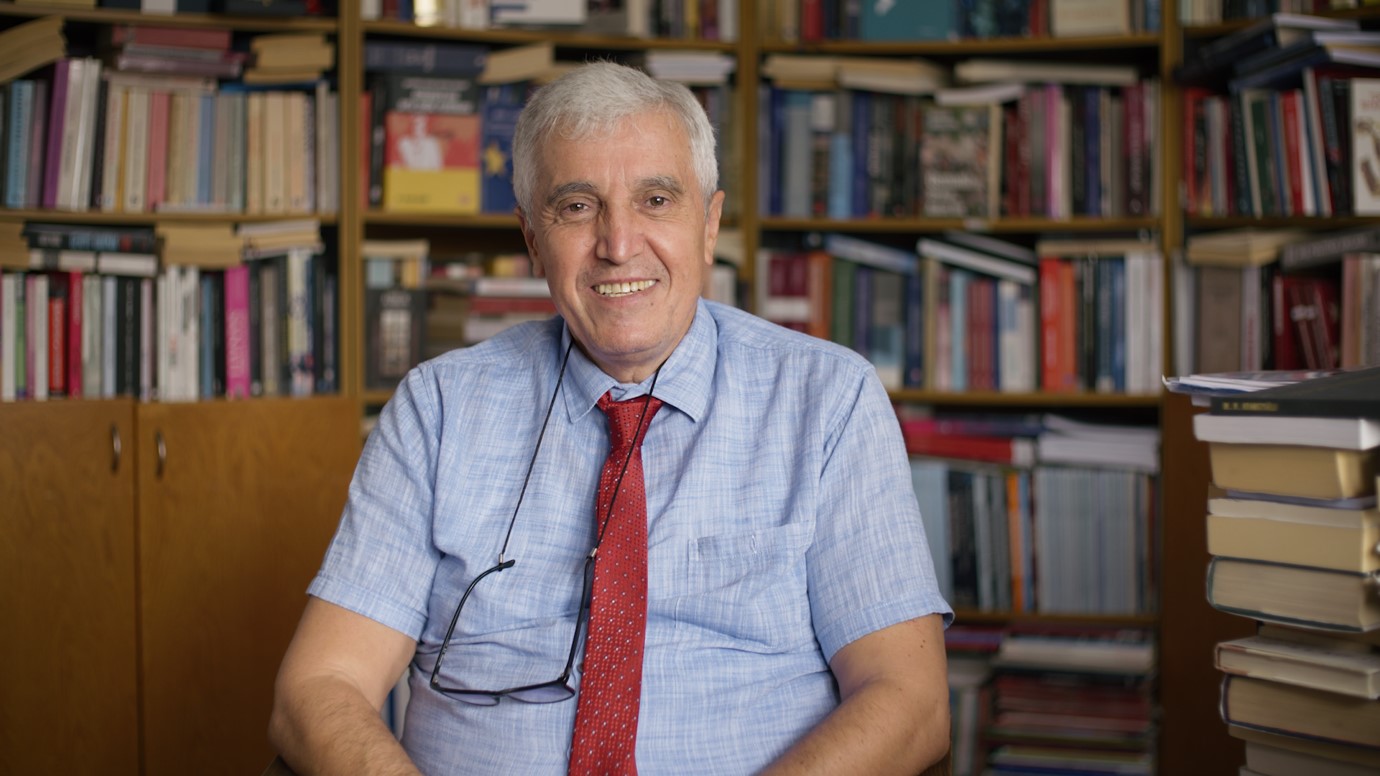Huseyin Bagci: Connectivity is in the interests of all countries
Ankara, Türkiye's capital, is a unique blend of modernity and rich historical roots, as well as a hub of Turkish culture, politics, and history. Turkish-Chinese relations in recent years have expanded rapidly through economic cooperation, social exchange, and cultural dialogue. Huseyin Bagci, professor of international relations at the Middle East Technical University in Ankara, showed strong confidence in the Chinese-Turkish partnership and looked forward to witnessing more collaborations between the two countries.
Bagci said, "For China, Türkiye is the western neighbor. From Europe, we are on the east, but from China, we are on the west. Chinese-Turkish relations in recent years particularly have reached a level that is unique in our history. Top-level visits, top statements, and economic investments from both sides. There is also a new type of intellectual relations between the two sides."

Huseyin Bagci (Photo/Patrick Shead-Simmonds)
As one of the co-founders of Ankara Global Advisory Group, Bagci shared his vision of the group. "We want to bring Türkiye and China together, starting from political developments to cultural and educational exchanges. So far, we have good relations with Chinese institutions, universities and think tanks."
In May this year, Bagci and his colleagues visited China for 10 days and went to five universities and four institutes, including Fudan University, Shanghai University, and the Chinese Academy of Social Sciences. "We enjoyed sharing intellectual ideas and talking about economic, political, environmental, and migration issues. We came to a common understanding on several points that will lead us to work together to provide peace and harmony for a community of a common destiny."
Bagci also shared some highlights from his meetings in China. "Concerning the political crisis from Central Asia to the Middle East, we talked a lot about how to act together and provide peace. We also discussed environmental issues like how to work together to solve climate change. Türkiye is one of the countries that needs renewable energy, a clean environment, and clean water, which will require both Chinese technology and Chinese economic cooperation. Both countries can not only make profit together but also help other countries in their regions to deal with problems together."
Bagci highlighted that the Chinese style of development is different from that of the 18th and 19th centuries. Instead of being a form of exploitation, it is to help countries in need to deal with challenges and difficulties. "I have seen many developments in this respect. Since 2014, I participated six times in the Belt and Road policy discussions in Shanghai. The Belt and Road Initiative is sticking to its original target of bringing infrastructural changes to countries in need, letting people achieve a better life faster and avoid conflicts." Bagci considers the Belt and Road Initiative a representation of the spirit of a new era that is focused on cooperation, and is based on dialogue between countries. "We did not have connectivity before. We had ideological confrontation and separation. But now connectivity is in the interests of all countries."
When talking about the Turkish path of modernization, Bagci remarked, "The Turkish modernization process remains a Western-style modernization. But Chinese modernization provides new advantages, and we have to look at the East. Our education is too Eurocentric, and our minds are Eurocentric. Looking at Asia enriches our way of interpreting and seeing the world." He shared that, "I have visited China 12 times up until now and these experiences enriched me intellectually. I saw the Chinese way of development and transferred it to Türkiye via television, radio and conferences. We can learn a lot from the Chinese style of modernization."
Bagci said, "I have been in 120 countries already and my first visit to China was in 1995 and my last visit was in May this year. So, I can see how China has changed over the last 30 years. I am a witness of the Chinese modernization process and I see it through history."
When discussing the rising partnership between China and Türkiye, Bagci emphasized, "We should continue to work together. More maneuver room politically, economically, and culturally. We should not be afraid of this openness and new developments in the globe. The bilateral relations between China and Türkiye are not only in trade terms, but also in culture, arts, and educational developments. More and more students in Türkiye are learning Chinese, more Chinese publications, and an increased presence of China in cultural intuitions. Equally, Türkiye is now more present in China."

 Scan the QR Code
Scan the QR Code